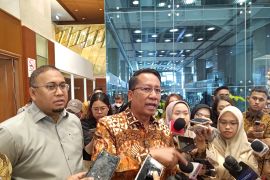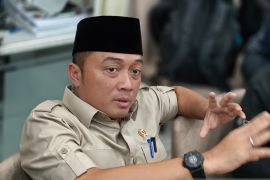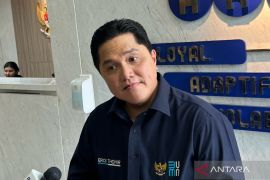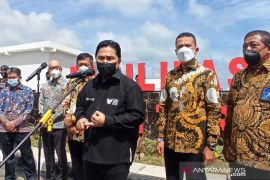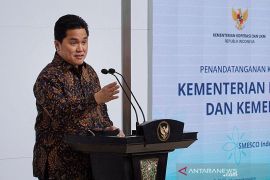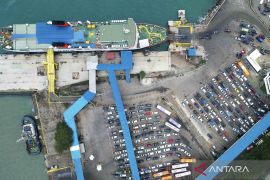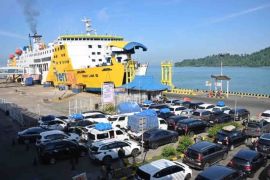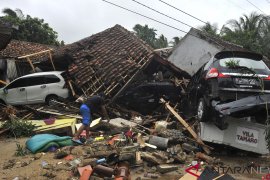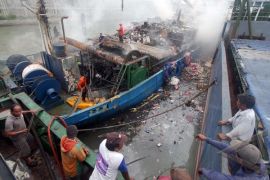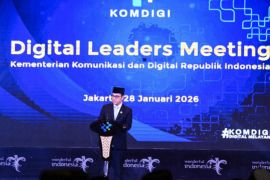Minister Rini also observed the status of transportation services for Christmas and New Year travelers at the ferry port.
"Anticipatory efforts made for the ferry services in the current Christmas and New Year are better than in previous years. I hope PT ASDP (state-owned inland waterway service firm) will increase the quality of its service," the minister said on the sidelines of her visit.
Rini appreciated the fact that ferry services for passengers crossing from Merak Harbor in the western part of Java to Bakauheni Port in the eastern tip of Sumatra were running smoothly.
The minister acknowledged that the flow of travelers crossing to Sumatra from Merak Port through the ASDP services were very smooth even during the peak days of December 22 and 23.
She expressed hope that Merak Port would focus not just on transportation services but also on becoming a destination port providing integrated services.
Moreover, transportation services at Merak Port will be fully complete only when there are bus and train services also.
"Hopefully, by 2018, Merak will provide a premium service, particularly for group IV passenger vehicles and an online e-ticketing service for private cars.
This is important owing to the fact that the number of private cars continues to increase. Apart from that, in 2018, a number of sections on the Trans Sumatra Toll Road would have been completed as part of infrastructure development for the Southeast Asian Games.
Meanwhile, Minister Budi Karya Sumadi encouraged PT ASDP to continue increasing its roll-on roll-off (ro-ro) ship capacity, and said it should serve not only as a supporter of national passenger and logistics transportation but also become a hub for optimal consolidation of sea transportation.
PT ASDP Indonesia President Director Faik Fahmi said his team was planning integrated development of Merak and Bakauheni ports.
"In future, a center of economic activities is to be developed here. Thus, the port would not only serve as a means for travelers to cross but also as a tourism destination that provides different experience and atmosphere," Faik said.
In the near future, the focus will be on completing the development of Pier VI and on expediting the tender process for the development of Pier VII.
"Our problem is not the number of ferries but the shortage of piers. In order to increase the productivity of the piers we will accelerate the port time from 60 minutes to 45 minutes and sailing time from 120 minutes to 100 minutes," he said.(*)
Editor: Heru Purwanto
Copyright © ANTARA 2016
